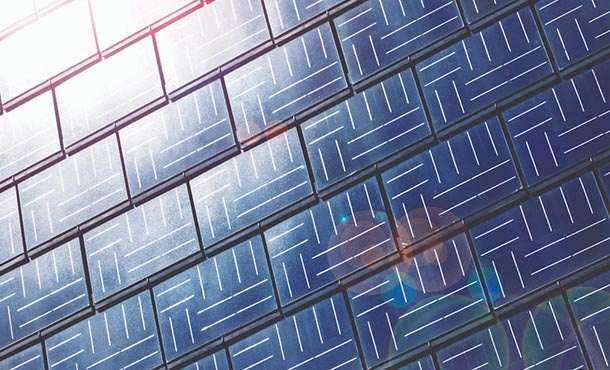
A symposium on the future of solar energy will occur at 4 p.m. on Thursday, Dec. 12 in 100 Life Sciences Building. IMAGE: ADOBE STOCK
Symposium to explore the future of solar energy
11/18/2019
UNIVERSITY PARK, Pa. — A symposium on the future of solar energy will feature experts from Penn State as well as the Massachusetts Institute of Technology (MIT), University of California (UC) Merced, and Princeton University. The event will be held at 4 p.m. on Thursday, Dec. 12 in 100 Life Sciences Building. The symposium is free and open to the public.
“Solar energy applications have a bright future, with home, business and utility-scale systems growing at a phenomenal rate based on silicon solar panels that can now produce electricity at a lower cost than natural gas,” said Bruce Logan, director of the Energy 2100 initiative, Kappe Professor of Environmental Engineering and Evan Pugh University Professor in the College of Engineering.
He added it is important to determine how Penn State can train this emerging solar workforce and become a leader in developing the next generation of solar panels.
The featured guests at the symposium will be Barry Rand from Princeton University, Sarah Kurtz from UC Merced and Tony Buonassisi from MIT.
“These individuals bring expertise in a wide range of established and emerging photovoltaic technologies as well as national and international trends in the solar industry,” said Chris Giebink, associate professor of electrical engineering in the College of Engineering.
Giebink added that the rapid growth and maturing of solar power raises new questions about where university research can still meaningfully contribute to technology development.
The symposium aims to address these long-term research questions as well as explore opportunities for Penn State to lead in educating and training students for solar jobs.
The symposium is a part of a series on the future of energy and is connected to the Energy 2100 initiative.



